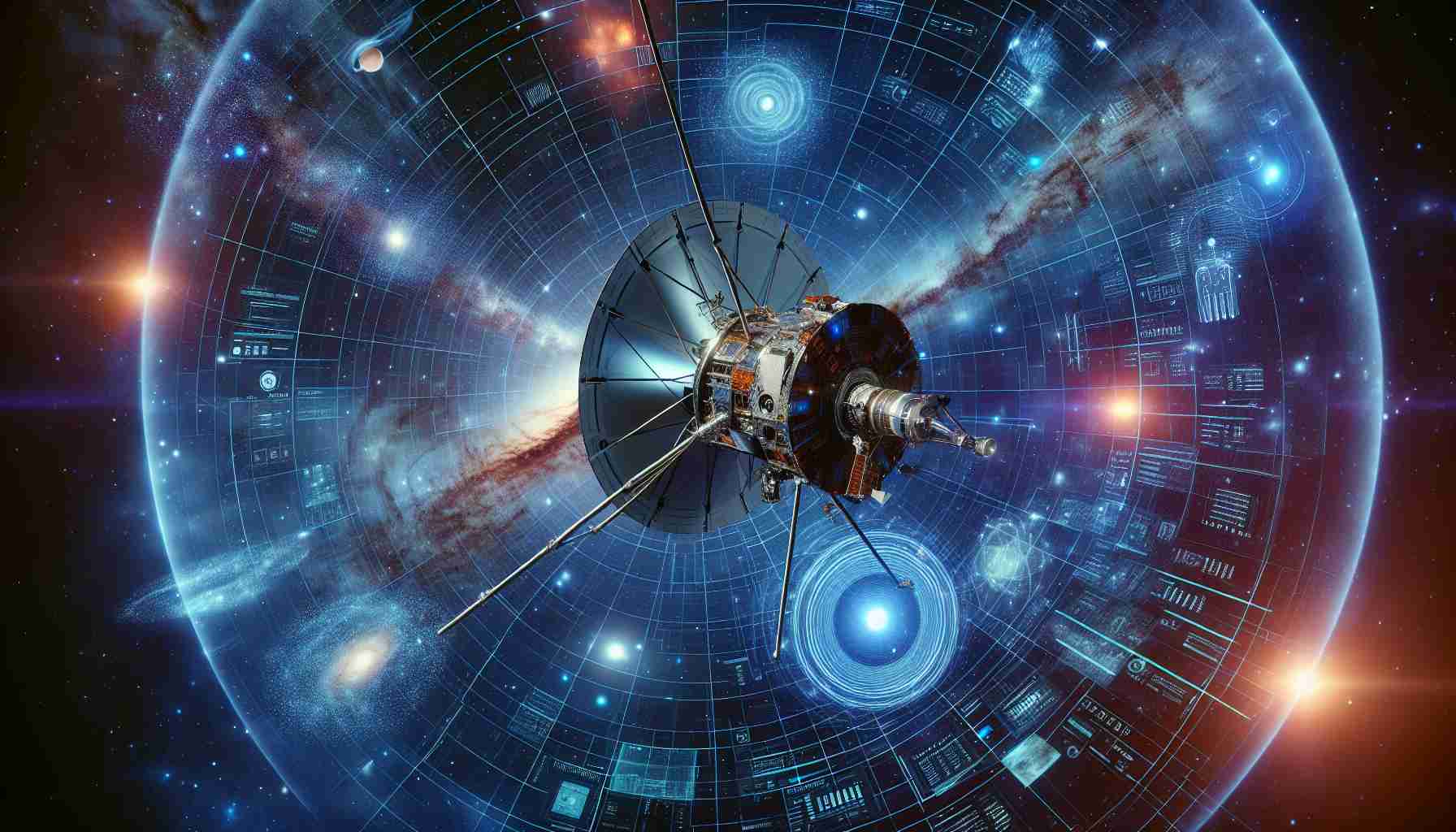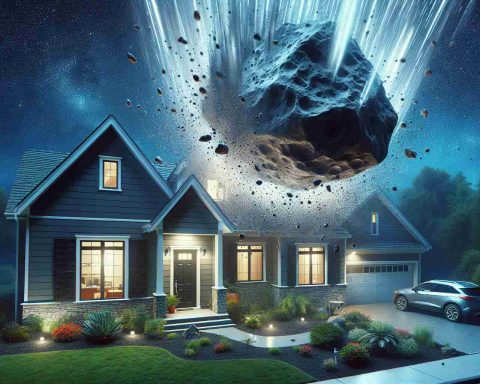A Rare Meteorite Encounter
In an astonishing event, a Canadian couple experienced a rare phenomenon directly in front of their home. As they returned from an evening stroll, they discovered their walkway scattered with unusual debris. Their doorbell camera had recorded a remarkable scene capturing the moment a meteorite crashed into their property.
The couple was taken aback to see dust and fragments littering their entranceway. Upon reviewing the footage, they observed a bright object colliding with their walkway, resulting in a cloud of smoke and a distinct crackling sound. This shocking discovery prompted them to contact the University of Alberta’s Meteorite Reporting System, where curator Chris Herd analyzed the remnants.
Meteorites are remnants of space materials, surviving the intense heat of Earth’s atmosphere as they plunge to the surface. NASA estimates that approximately 43 tonnes of such debris lands on our planet daily, often ending up in oceans or remote areas rather than in residential neighborhoods.
The incident, which occurred in July, marks a significant first. While numerous cameras have captured meteors racing across the sky, documenting the auditory experience of a meteorite impact is exceptionally rare. The space rock has been officially named “Charlottetown,” in honor of the city on Prince Edward Island where it fell. This incident not only fascinated the couple but also captivated those interested in space phenomena.
The Broader Implications of Meteorite Encounters
The rare incident of a meteorite crashing into a residential area opens up intriguing discussions regarding its implications for society and culture. Such events prompt renewed interest in scientific education and public engagement with astronomy. This meteorite experience can inspire local school programs, sparking curiosity among students about space science and the origins of our universe.
Beyond cultural fascination, these occurrences have potential economic impacts. Rare meteorites can fetch significant sums in the collector’s market, leading to increases in tourism as enthusiasts or collectors seek locations of falls. This surge can support local economies through increased visitor engagement in regions known for such phenomena.
Moreover, the environmental implications of meteorite landings are worth noting. The materials from asteroids can provide unique insights into planetary formation and evolution. As scientists study these remnants, we gain a better understanding of potential resources for future space exploration, including the possibility of extracting metals from asteroids.
Looking ahead, we may witness a rise in community-led citizen science projects, with people actively reporting meteor sightings and impacts. As technology advances, more households may find themselves within the striking trajectory of a meteorite, challenging our perceptions of space safety and expanding the conversation around asteroid impact preparedness. Such future trends inevitably underscore the long-term significance of understanding our cosmic neighborhood, as we expand our reach into the universe while safeguarding our planet.
Unveiling the Mystery of ‘Charlottetown’: Meteorite Insights and Impacts
A Rare Meteorite Encounter
In a startling event that captivated both the local community and meteorite enthusiasts, a Canadian couple experienced a rare meteorite impact right at their doorstep. This incident brings to light the intriguing world of meteorites, revealing essential information about their nature, impacts, and broader significance in scientific research.
What Are Meteorites?
Meteorites are fragments of asteroids or comets that survive their trip through Earth’s atmosphere, avoiding disintegration and landing on the surface. According to NASA, about 43 tons of meteoritic material falls to Earth each day, yet only a fraction is discovered due to the vastness of the planet’s surface—much of which is ocean or uninhabited land.
The Impact Event of ‘Charlottetown’
The incident in July, wherein a meteorite was dubbed “Charlottetown” after the city in Prince Edward Island, was a landmark event not just for the couple but also for scientists. The couple’s doorbell camera recorded the moment when the meteorite struck, capturing the auditory and visual spectacle of this rare phenomenon. This documentation of sound accompanying a meteorite landing is exceptionally rare, providing unique data for researchers.
Use Cases of Meteorites in Research
Meteorites serve as invaluable tools in scientific research, helping scientists understand the formation of the solar system and the materials that constitute other celestial bodies. They can reveal information about:
– The Age of the Solar System: Radiometric dating of meteorites often yields insights into the age of planetary bodies.
– Planetary Formation: Studying their composition helps scientists model the processes involved in planetary formation.
– Life’s Origins: Some meteorites contain organic compounds, offering clues about potential life on other planets.
Controversies Surrounding Meteorite Ownership
The ownership of meteorites can be contentious. Certain countries have strict regulations that dictate the recovery and ownership rights. For instance, in Canada, the recovery of meteorites is often subject to specific laws, and respecting scientific institutions’ interests can lead to debates over rightful ownership.
Pros and Cons of Meteorite Collecting
Pros:
– Provides educational opportunities and promotes public interest in science.
– Contributes to scientific research and understanding of cosmic materials.
Cons:
– Legal complications regarding ownership can arise.
– Improper excavation or handling may lead to damage, undermining scientific integrity.
Future Trends in Meteorite Research
As interest in space exploration grows, so does the potential for meteorite research. Innovations in technology and increasing collaboration between private and public sectors in space missions are likely to yield more meteorite discoveries. For instance, the return of samples from missions to asteroids like Bennu could revolutionize our understanding of early solar system materials.
Insights and Predictions
Meteorite impacts, like the one that occurred in Charlottetown, are expected to continue sparking fascination. Increased public awareness and education about meteorites might lead to a rise in amateur meteorite hunters, contributing to a wider database of meteorite findings. As technology advances, scientists can also expect to develop better predictive models for meteorite trajectories, enhancing our readiness for future impacts.
Conclusion
This extraordinary event not only marks a remarkable personal experience for the couple involved but also adds a noteworthy chapter to the ongoing study of meteorites. By delving deeper into the implications and applications of meteorite research, we can better appreciate both these celestial messengers and their role in expanding our understanding of the universe. For further fascinating insights into meteorites and space phenomena, check out more resources at NASA.














